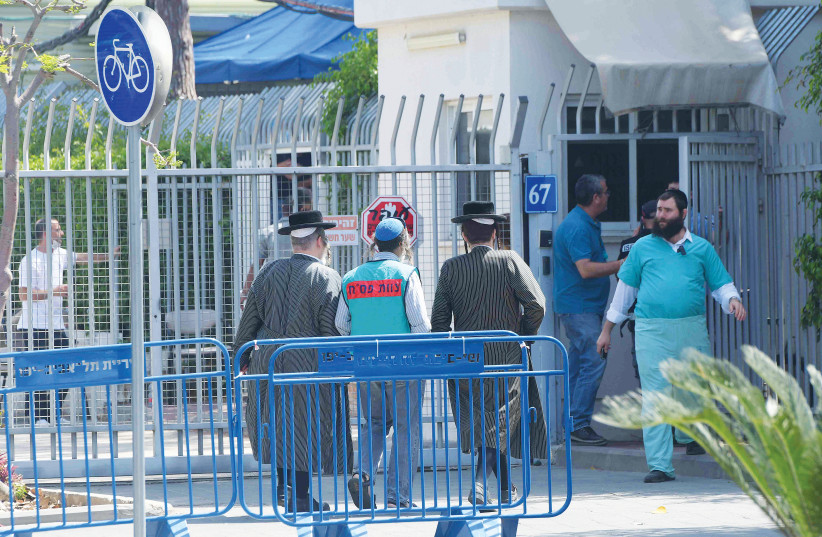The Abu Kabir Institute of Forensic Medicine is on the verge of collapse: three of the five specialist doctors have submitted their resignations to the Health Ministry. If the resignations are indeed processed, the institute will be left with one doctor, four interns, and the institute's director, Dr. Hen Kugel.
The crisis at the Institute of Forensic Medicine has been ongoing for many years: the institute, located in Abu Kabir in Tel Aviv, suffers from inadequate standards and a heavy workload that worsened after the October 7 massacre. The institute's doctors are sometimes required to work day and night, travel from their homes to external sites, and often perform dozens of surgeries a week while dealing with very difficult sights.
The doctors who submitted their resignations are Dr. Alon Krispin, Dr. Hadas Gips, and Dr. Maya Forman, all of whom have been exceptionally appreciated for their work. One of the resignees, Dr. Forman, was the one who revealed in the retrial of the murder of Tair Rada (a 13-year-old Israeli schoolgirl who was killed in 2006) that the knife with which the murder was committed was serrated and not as the then suspect Roman Zadorov testified, adding a layer to the assessment that he is not the murderer.
Just a week ago, the Health Ministry laid the foundation stone for the new Institute of Forensic Medicine that will be established on the campus of the Shamir Medical Center (Assaf Harofeh) instead of the neglected building in Abu Kabir. The new institute is expected to span 5,000 square meters and include advanced technological means and modern operating rooms. However, the ministry has failed to address the significant manpower shortage over the years, and the institute remains understaffed and has very heavy burdens on the doctors.
Health Ministry responds to the alarming report
The Health Ministry responded to this report: "The Health Ministry recognizes and appreciates the hard and strenuous work of the medical teams who work both routinely and in emergencies as sacred work. The ministry and the institute have been working for many months and years to improve the working conditions and salaries of the medical staff at the institute."

"This includes many discussions within the framework of negotiations with the Medical Association and the salary commissioner at the Treasury regarding the doctors' salaries, focusing on the conditions of forensic doctors alongside psychiatrists and rehabilitation doctors. We are working to find solutions that will allow for the decent employment of the institute's staff, now and in the future, understanding its importance and critical role in forensic medicine in Israel."
